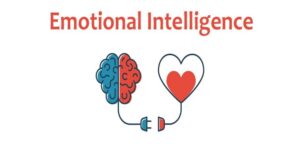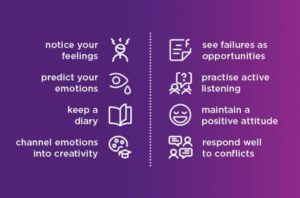As a famous saying by Fyodor Dostoyevsky – “It takes something more than intelligence to act intelligently.”
Technical skills might get someone hired, but emotional intelligence (EI) determines how far they’ll go. Emotional Intelligence is now recognized as the key predictor of long-term success. When recruitment strategies embed EI assessment, organizations benefit from stronger collaboration, reduced turnover, and higher engagement.
There’s solid research backing this up. Harvard Business Review identifies this as a defining trait of effective professionals, and the World Economic Forum lists it among essential future skills. Yet in most professional development programs, we barely address it. We focus heavily on technical competencies but overlook this critical skill that impacts daily workplace success.
What is Emotional Intelligence?
Emotional intelligence is the ability to understand, manage, and influence your emotions and the emotions of others. According to Harvard Business Review, emotional intelligence is one of the defining traits of effective leaders. It is about being aware of how your feelings influence your thoughts and actions, and using that awareness to cultivate strong, effective relationships.
IQ and technical skills are important, but emotional intelligence is the sine qua non of leadership by Daniel Goleman. Emotional intelligence sets the most effective leaders apart.
***Sine qua non” is a Latin phrase that means “without which not” ***

Here’s how you can apply emotional intelligence in the workplace. Five key components of EQ:
Self-Awareness: Great Leadership starts with Looking Inward. Being attuned to your own emotions, triggers, and energy allows you to lead with intention rather than reaction.
Empathy: Empathy transforms workplaces. It’s the ability to listen deeply, understand perspectives, and create an environment where people feel valued and seen. From effective communication to conflict resolution and leadership, strong social skills are vital for building and maintaining relationships.
Communication: EQ strengthens communication by ensuring it’s not just about what you say, but how you say it. Leaders with emotional intelligence know how to align tone, body language, and listening skills with their message.
Motivation: Being driven to achieve for the sake of achievement—not just external rewards. Emotionally intelligent individuals are usually more optimistic and goal-oriented.
Social Skills: From effective communication to conflict resolution and leadership, strong social skills are vital for building and maintaining relationships.

Practical insights showcasing emotional intelligence:
1. Ratan Tata’s Empathy During Crisis at Tata Group
When the 26/11 Mumbai attacks struck, Ratan Tata—then chairman of Tata Group— personally visited the families of affected employees. Beyond showing business acumen, he connected humanely during a time of tragedy. His humility, compassion, and purpose-driven leadership cemented trust within and beyond his organization. His empathetic response demonstrated that in moments of crisis, emotionally intelligent leadership builds legitimacy and loyalty that transcend commerce.
2. Real Life Story Indra Nooyi – Compassionate Leadership at PepsiCo
As CEO, she wrote personal letters to employees’ parents, thanking them for their children’s contributions. This simple act of appreciation fostered loyalty and emotional connection across the company.
How to raise your emotional intelligence below are the visuals:

- Practise noticing how you feel and how you act in different situations.
- Start predicting how certain things will make you feel. Accept those emotions in advance.
- Keep a diary to improve your self-awareness. Focus your entries on how events made you feel and how you dealt with those emotions.
- When you’re overwhelmed by an emotion like anger or sadness, channel it into something creative or productive. The burst of energy might help you finish that big history project or write an inspired short story for English.
- Try to see failures as opportunities to learn rather than disappointments. Think about what you’ll do differently next time rather than dwelling on what you did wrong this time.
- Practice Active Listening Techniques until they become second nature to you. These include eye contact, asking specific questions, verbal affirmations, engaged body language and paraphrasing.
- Find ways to maintain a positive attitude throughout the day.
- Respond constructively to conflicts rather than reacting emotionally. Try to see the problem and solution that lie beyond the anger or frustration.
Emotional intelligence isn’t something you switch on overnight. It’s an evolving skill that takes time and conscious effort to develop over the years. By thinking about it now, you’re giving yourself a great head-start on the journey to having a high EI.
A concise conclusion:
In both life and work, Emotional Intelligence is the silent driver of success. It’s the strength behind confident communication, compassionate leadership, and lasting relationships. Whether you’re a student, entrepreneur, or leader—investing in your EQ might be the most important decision you make this year.





Leave a Reply